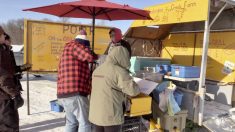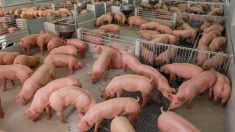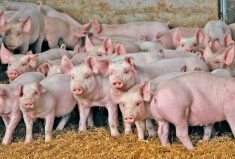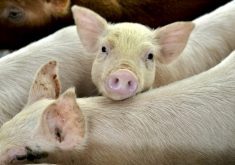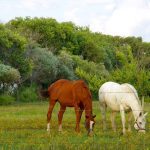Canadian farmers cut back their hog herds to the smallest size in 13 years as of Oct. 1, as high feed costs and an unfavourably strong Canadian dollar puts many of them out of business.
The hog inventory on Canadian farms slipped 0.8 per cent to 11.9 million head in the third quarter from a year earlier, Statistics Canada said on Oct. 28.
Several years of low hog prices, high feed costs and a volatile Canadian dollar led the Canadian government last year to offer incentives to farmers who stop producing hogs.
Read Also

MANITOBA AG DAYS: Does farm size affect crop insurance risk?
Crop insurance data highlights traits of Manitoba farms that file the fewest claims, part of the lineup at Manitoba Ag Days 2026 in Brandon.
While hog prices have recovered from a year ago, so too have corn and wheat prices. The Canadian dollar is also historically strong against the U. S. dollar, making Canadian hogs more expensive in international trade.
Many hog farms have gone bankrupt in recent years, said Jim Long, chief executive of Genesus Genetics, a Canadian breeding and exporting company.
“To stay in the hog business, you need two things, capital and courage,” he said. “A significant amount of people ran out of capital and a significant number of producers lost faith in the Canadian hog industry.”
Chicago lean hog futures are about one-fifth higher than they were a year ago at around 67 U. S. cents per lb., as North American farmers cut back their herds due to high feed costs and recession-dampened demand for meat.
Canada’s sow inventory – a key indicator of the future trend in hog production – fell nearly four per cent to 1.3 million head, StatsCan said.
Canadian hog exports fell nearly 12 per cent to 1.3 million hogs from a year earlier. Hog exports have been hit hard by the country-of-origin meat labelling law in the United States that raises U. S. packer costs of processing foreign hogs.





